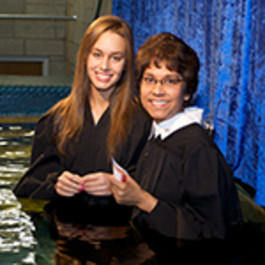Of Esther and Women Pastors

On the occasion of this farewell for the first woman pastor to serve the Pioneer Memorial Church, I would like to digress from the usual focus of this Fourth Watch blog and reflect on the pastoral ministry of Esther Knott and the journey of women in ministry during her sixteen years of spiritual leadership in this congregation. I first met Esther, when she was a graduate student here at Andrews University. I was still new in the Pioneer pastorate, when she stopped by the church office for a visit. Active on campus as a student leader and having served already as campus chaplain at Broadview Academy (Illinois), there was no question Esther felt called of God to pursue pastoral ministry. I listened as she described her deepening conviction to serve Christ as a shepherd, as a pastor. We talked about the limitations women who sensed God’s call to pastoral ministry were facing, with most career opportunities at that time limited to hospital chaplaincy or Bible teaching. I remember her tears and our prayer that God would open the door someday somewhere, little realizing that more than a decade later she would be invited by the Michigan Conference to serve as one of the pastors of this university congregation. The past sixteen years have seen major strides in the ministry of women pastors within the Seventh-day Adventist Church. No longer confined to chaplaincy and teaching roles, more and more women within our community of faith are now exercising spiritual leadership as pastors and denominational administrators. And I know you join me in praising God for the way in which the Holy Spirit has opened “a great and effective door” (1 Corinthians 16:9) for the women in our movement who sense God’s call to gospel ministry. However, we are not there yet. That is why the world church has established a Theology of Ordination Study Committee to prayerfully and biblically examine and recommend what our denomination’s next step needs to be in regards to ordaining women pastors to the same spiritual leadership and authority that their male counterparts now enjoy. Both Esther and I are on that committee. I firmly believe that God will work through this very human process to guide this church we love toward the mighty fulfillment of Joel 2:28, 29. But let me be quick to note that over the past sixteen years Esther has never raised her voice in defense of her calling or in petition for her ordination. Rather, she has effectively gone about the ministry of Jesus, who “with the Holy Spirit and with power went about doing good” (Acts 10:38). And that, I believe, is the eloquent and effective testimony she has brought to our collective conversation about ordination—her faithfulness and fruitfulness in pastoral ministry in both our parish and our conference speak volumes to God’s shared calling, His shared giftedness and the Spirit’s shared authority in gospel ministry for both genders. While Esther moves on now in obedience to the divine call to focus her ministry energies and gifts for equipping the pastors of the North American Division of our world church, her sixteen years in our midst will remain a shining testimony to the inestimable value of women pastors the world over. And for that we thank God for her, and we say Amen!